This is the best position for sleep, according to health experts
We ask experts for the best sleep positions for your health

Since we spend approximately one-third of our lives asleep, it’s important to make the most of your shuteye. Sleeping enough — about 7 to 9 hours for most healthy adults — can promote countless markers of health ranging from immune function to muscle recovery.
That said, if you routinely wake up with aches and pains or lack quality sleep in other ways, it may be time to consider your sleeping position and your mattress.
Many of the beds that feature in this year's best mattress guide focus on features designed to help sleepers avoid pressure on their joints and achieve healthy spine alignment, no matter their sleeping position.
We've spoken to stop sleep posture experts to find out the best sleeping positions are amongst supine (back sleeping), prone (stomach sleeping), left side, and right side — as well as ideal mattress choices for each.
Are some sleeping positions better than others?
Some sleeping positions are considered to be superior to others, though it depends on your specific needs. For instance, you may want to train yourself to sleep in a different position if your snoring or digestive woes get in the way of achieving rest and are causing sleep deprivation.
The same goes for if you routinely wake up feeling stiff or achey. “Your sleeping position plays a role in whether or not you will develop muscles aches and pains because you are likely to remain in that one position night after night,” explains Rubina Tahir, DC, a chiropractor in Ann Arbor, Michigan.
“Sleeping on your back or your side allows for proper alignment of your spine, providing that the right pillows and mattresses are used, explains Dr. Ali H. Mesiwala, a neurosurgeon and sports specialist at DISC Sports & Spine Center in Newport Beach, California. “We are constantly moving throughout our sleep, so to a certain extent, you don’t have conscious control over the position in which you are sleeping.”
Sign up to get the BEST of Tom's Guide direct to your inbox.
Get instant access to breaking news, the hottest reviews, great deals and helpful tips.
Is there a ‘best’ sleeping position?
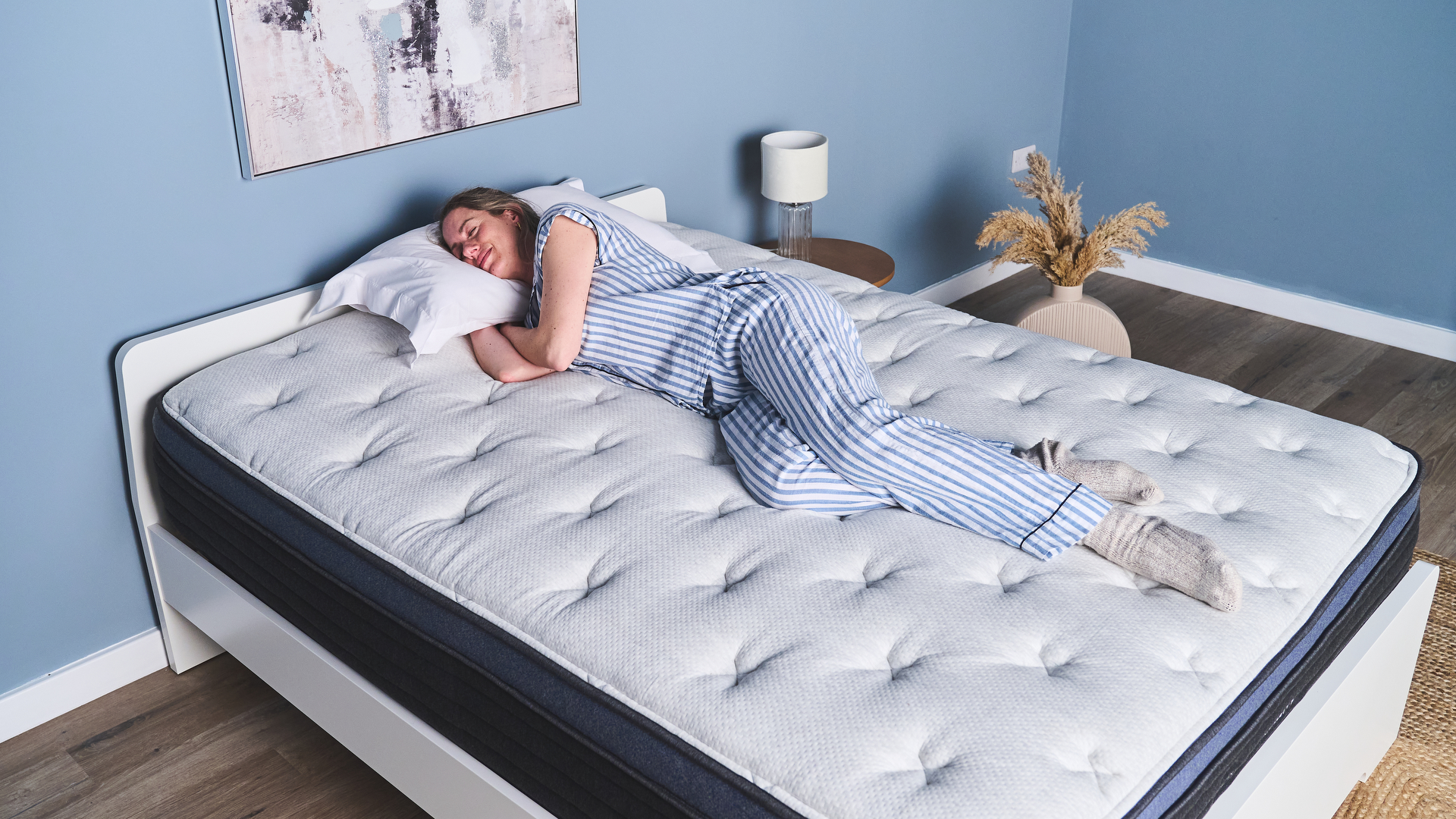
Side sleeping and back sleeping are generally considered to be the best sleeping positions. This is mainly due to their ability to promote proper (or neutral) spinal alignment and protect the joints.
Per a 2019 review of four studies published in the journal BMJ Open, side (aka lateral) sleeping is generally effective in staving off spinal symptoms. Side sleeping is also preferred for snorers, as sleeping on your back may contribute to snoring, potentially waking yourself or your partner.
Sleeping on your back is also a good choice if snoring isn’t an issue for you. “Back or side sleeping is best, and stomach sleeping should be avoided,” says Dr. Tahir.
The supine sleeping position (back sleeping)
The supine sleeping position, aka back sleeping, involves laying with your back on the mattress either with or without pillows. Your arms may rest on your stomach, at your sides, or above your head in a starfish position.
Who the supine sleeping position is best for?
Supine sleeping is a great option for most people — barring those who snore. If you have Sleep Apnea, then sleeping on your back can worsen your symptoms. This is because the airways are more likely to collapse, leading to pauses in breathing.
Pros:
- Keeps the spine aligned
- Evenly distributes body weight
- Prevents pressure build up
- Supports the neck
“Back sleeping is considered a neutral posture for sleeping,” says Dr. Tahir. She prizes this sleeping position since joints become weaker when they deviate from a neutral position.
“Sleeping on your back supports the curve in your back (lumbar lordosis) and the curve in your neck (cervical lordosis),” she continues.
This sleeping position also allows for the equal distribution of your body weight, which can lead to less pressure build-up and fewer aches and pains compared to side sleeping and stomach sleeping.
“This position is best for any shoulder injuries,” the chiropractor adds.
Cons:
- More likely to snore
- Risk of inadequate neck support
Dr. Tahir reminds us that snoring will be exacerbated by sleeping on your back. That’s because the tongue and soft palate fall back when you’re in a supine position, which boosts the likelihood of snoring.
According to Yale Medicine, approximately 37 million Americans snore regularly, which takes back sleeping out of the running as the best sleeping position for snoring.
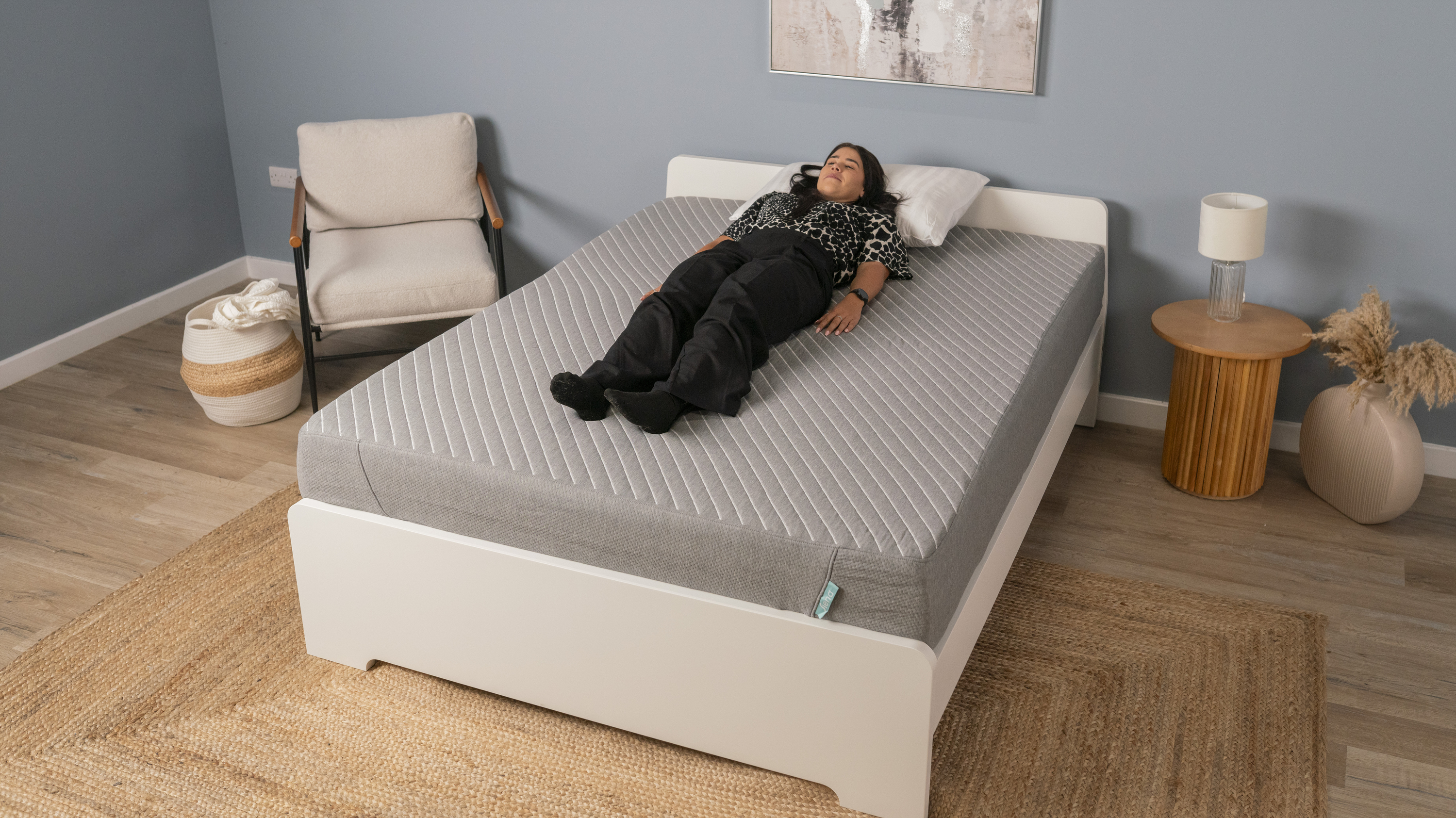
"When we sleep on our backs — also known as the supine position — our windpipes become slightly narrowed. While that’s fine for most of us, sleeping on our backs can decrease the opening enough to cause snoring or even blockage in the airway with sleep apnea," explains Dr Khayat.
Dr. Tahir adds that back sleeping can work against you with improper pillow use. “A bad habit when sleeping on your back is thinking you need more than one pillow,” she warns. “There can be an urge to stack pillows or to read a book in bed — yet these are non-neutral postures that place muscles out of balance, making it likely that you will wake up with a stiff neck.”
Recommended mattresses for back sleeping position
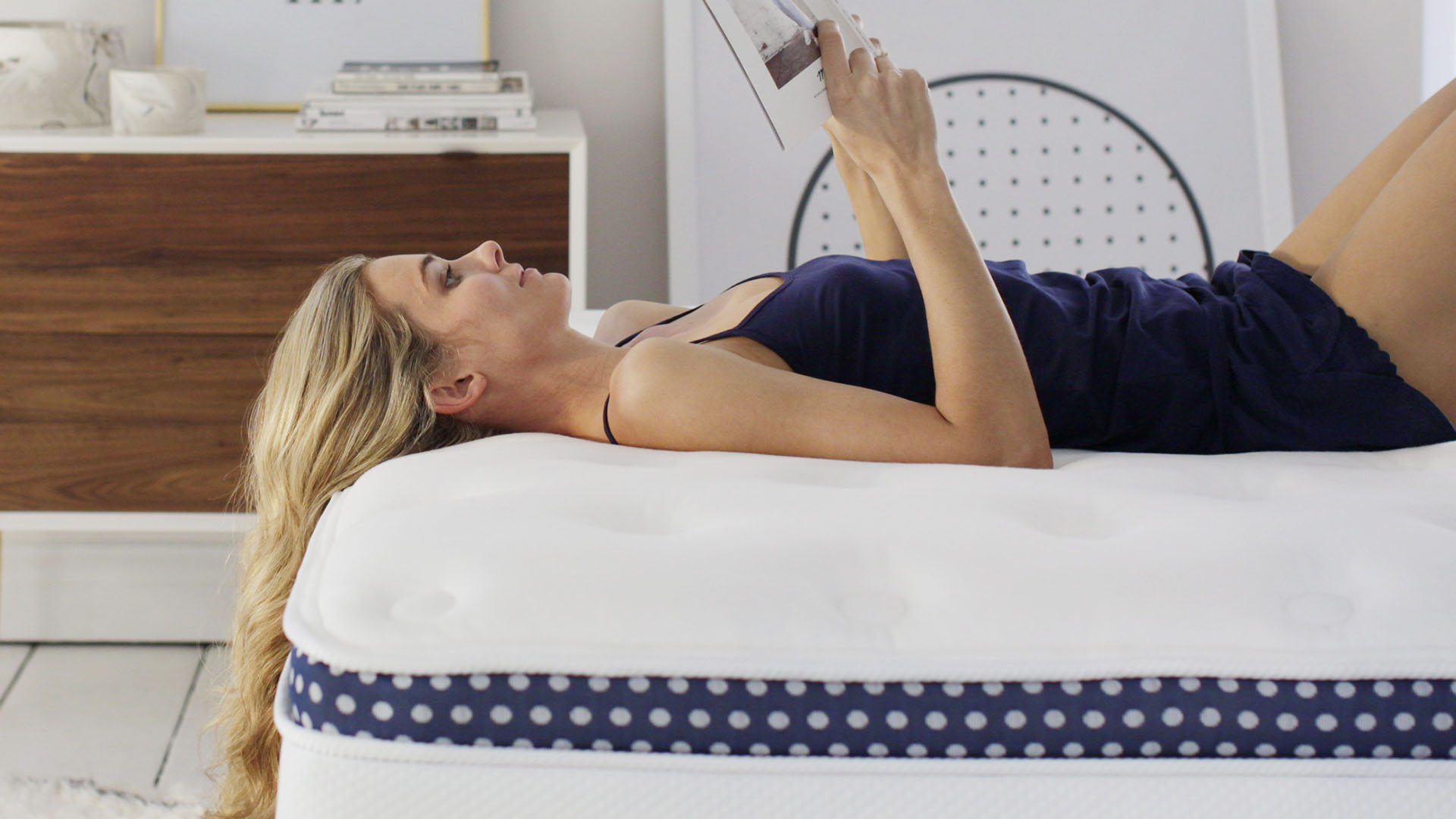
For those who sleep in a supine position, Dr. Tahir says a firm mattress is typically best to support your spine.
“Avoid a single coil mattress, as it will start to sink in the middle,” she shares. Individual pocket-coil mattresses, on the other hand, “provide consistent support to the joints of the body.”
She cites the Sealy Posturepedic Hybrid Ashurst Firm Mattress as one of her favorites for back sleeping. The Stearns & Foster Studio 14” Medium Mattress comes in at a close second. Meanwhile, the WinkBed Mattress landed the top spot for firm mattresses in the Tom’s Guide 2025 best firm mattress guide.
“Always keep in mind your body weight and height when choosing a mattress,” Dr. Tahir adds. “The taller or heavier set you are, [be sure to] stick with a firm mattress.”
The prone sleeping position (stomach sleeping)
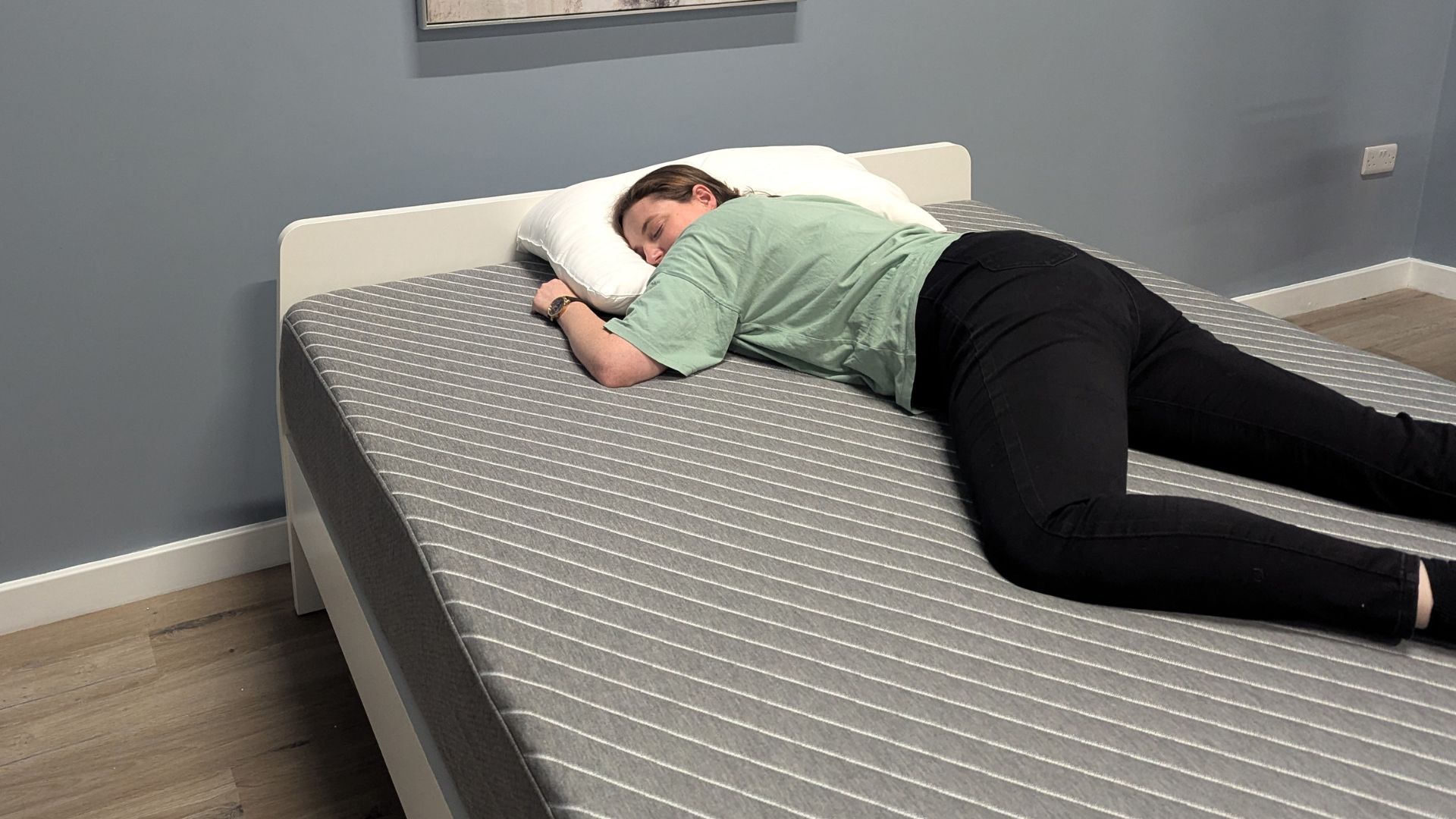
The prone sleeping position, aka stomach sleeping, is generally considered to be the unhealthiest sleeping position. Stomach sleeping involves laying flat on your belly with your head turned to one side.
Who the prone sleeping position is best for
“Plain and simple: Stomach sleeping is a recipe for joint pain and should be avoided at all costs,” Dr. Tahir cautions.
Pros:
- Can help air flow to the lungs
While the risks of the prone sleeping position largely outweigh the benefits, Dr. Tahir says that stomach sleeping can help air flow more evenly to your lungs.
Aside from that, there are no other benefits of this sleeping position. So, if you’re regularly sleeping on your stomach, it might be time to reconsider your resting position.
Cons:
- Misalignment of the spine
- Neck pain
- Discomfort
Unless you have a mattress that specifically supports this sleep position, misalignment and discomfort are pretty much guaranteed with the prone sleeping position.
“Increased arching in the low back will irritate the disc and facet joints of the spine, causing pain,” says Dr. Tahir. “The neck will be forced into extension, leading to aches and pains upon waking.”
“If you lie on your stomach, there is no support for your spine,” explains James Leinhardt, a sleep position expert and the founder of mattress brand Levitex. “Even if we ignore the fact that you have to turn your head all the way left, or all the way right, for a very long period of time, it's like watching TV to your left for seven hours.
Even if we ignore that bit, gravity will fight the natural curves of your spine. But also by lying on your stomach, you will hyperextend your neck, particularly if you're sleeping on a pillow, you will compress the seven tiny vertebrae in your neck, which is of course no good.”
Recommended mattresses for stomach sleepers

The Helix Dusk Luxe mattress is Tom’s Guide–approved as the best mattress for stomach sleepers given its composition to support spinal alignment, solid lumbar support, and responsive sleep surface.
Soft or medium memory foam mattresses can cause neck extension, so a firm mattress is best for stomach sleepers. With that in mind, Dr Tahir still strongly cautions against prioritizing this sleeping position. “I don’t think there is any mattress that can help ease the concerns of stomach sleeping,” she concludes.
A body pillow can help you switch from stomach sleeping to side sleeping, if you're worried about the strain this awkward position might be putting on your body as you sleep.
The left side sleeping position
The left side sleeping position is pretty self-explanatory. While sleeping on your side — whether in a fetal position or not — you may nestle a pillow between your head and shoulders and/or hug a pillow for comfort and to prevent arching forward.
Who the left side sleeping position is best for
This sleeping position is ideal for most sleepers — including those who are pregnant, have low back pain, or deal with digestive issues — so long as your legs and hips remain aligned.
Pros:
- Aligns the spine
- Reduces snoring
- Reduces axid reflux
- Best position for pregnant people
There are countless benefits associated with side sleeping, whether on the left or right lateral position.
“It’s the best for spinal alignment, shoulders, hips and knees; reduces the risk of snoring; and relieves pressure on trigger points for fibromyalgia patients,” Dr. Tahir explains. She also recommends left or right side sleeping for any acute low back injuries.
Another perk associated with left-side sleeping in particular: a reduced risk of acid reflux and heartburn, which may be attributed to the anatomical positioning of the stomach.
“Sleeping on your side allows the cardiovascular system to be in a neutral position,” explains Dr Mesiwala. “What that means is that the amount of work the heart has to do, as well as the blood vessels, to get blood flow from the heart to respective organs is minimized.”
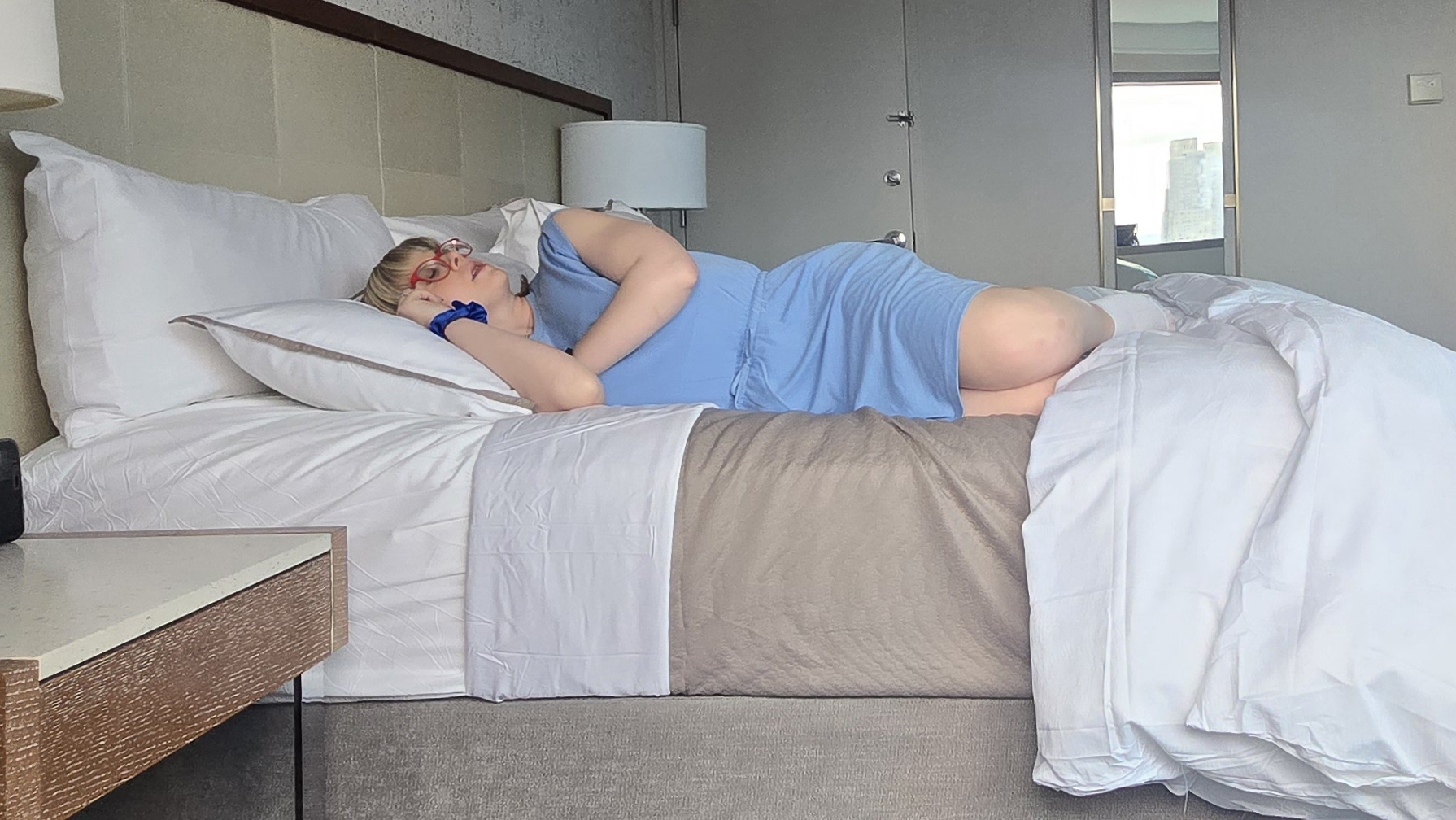
What’s more, there is some evidence to suggest that sleeping on your side can have great implications for your brain. “This position helps your glymphatic system, which is like a cleanup crew for your brain. This could be a game-changer in lowering the risk of brain diseases like Alzheimer's”, says Louisa Nicola, a Neurophysiologist and Momentous performance coach.
If snoring from a partner or even from yourself keeps you awake at night then the good news is that sleeping on your side can also help to reduce it with Dr Rami N. Khayat, medical director of UCI Health sleep medicine services at the University of California Irvine, explaining that when we lie on our backs the “abdominal contents push more into the chest and decrease the resting volume of the lungs resulting in a decrease in the space of the wind-pipe or the breathing passages.”
Left side sleeping was also often cited as the best sleeping position during pregnancy, though it has since been determined that right side sleeping is unlikely to cause harm. (With that in mind, be sure to consult your OB-GYN with any questions or concerns.)
What sleep position is healthiest for us largely depends on whether you have any existing health conditions “Generally, sleeping on the left side is recommended, particularly for expectant mothers, because it improves blood flow and reduces heartburn,” explains Nicola.
Cons:
- Risk of irritating hips if legs not positioned properly
- Not advised for people with heart failure
While left side sleeping offers many benefits, Dr. Tahir cautions against potential cons.
“If you are laying on your left side and your right leg is not on top of the left leg — but rather in a hyper-flexed position or hanging forward — it will irritate that right hip and right sciatic nerve,” she warns. To sidestep this issue, she recommends using a knee-spacer pillow.
Studies show that sleeping on your left side can also be uncomfortable for those with heart failure. As a result, heart failure patients tend to favor right-side sleeping instead of left.
Recommended mattresses for the left side sleepers
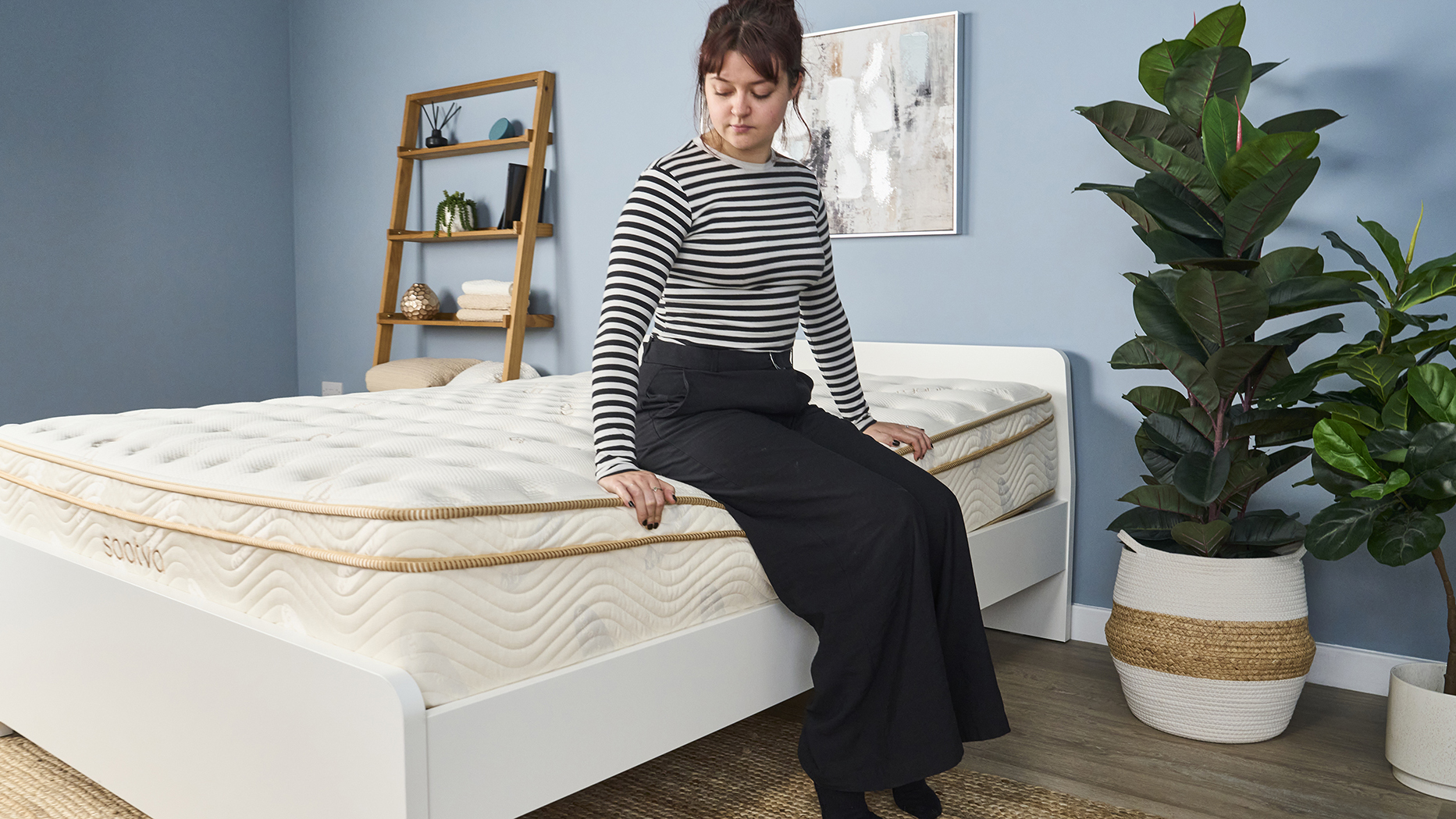
“Saatva and Nectar have great options for side sleepers” says Dr. Tahir. In particular, the Saatva Classic and the Nectar Memory Foam Mattress made the cut for the best mattresses for side sleepers. The top spot went to the Helix Midnight Luxe, though the more affordable Helix Midnight is also worth checking out if you’re more budget-conscious.
In general, however, the chiropractor suggests side sleepers opt for medium or firm mattresses.
“If you have advanced arthritis, then use a memory foam mattress topper,” she adds. “This will help you while sleeping when your muscles are inactive, and the memory foam will contour to support your joints well.”
The right side sleeping position
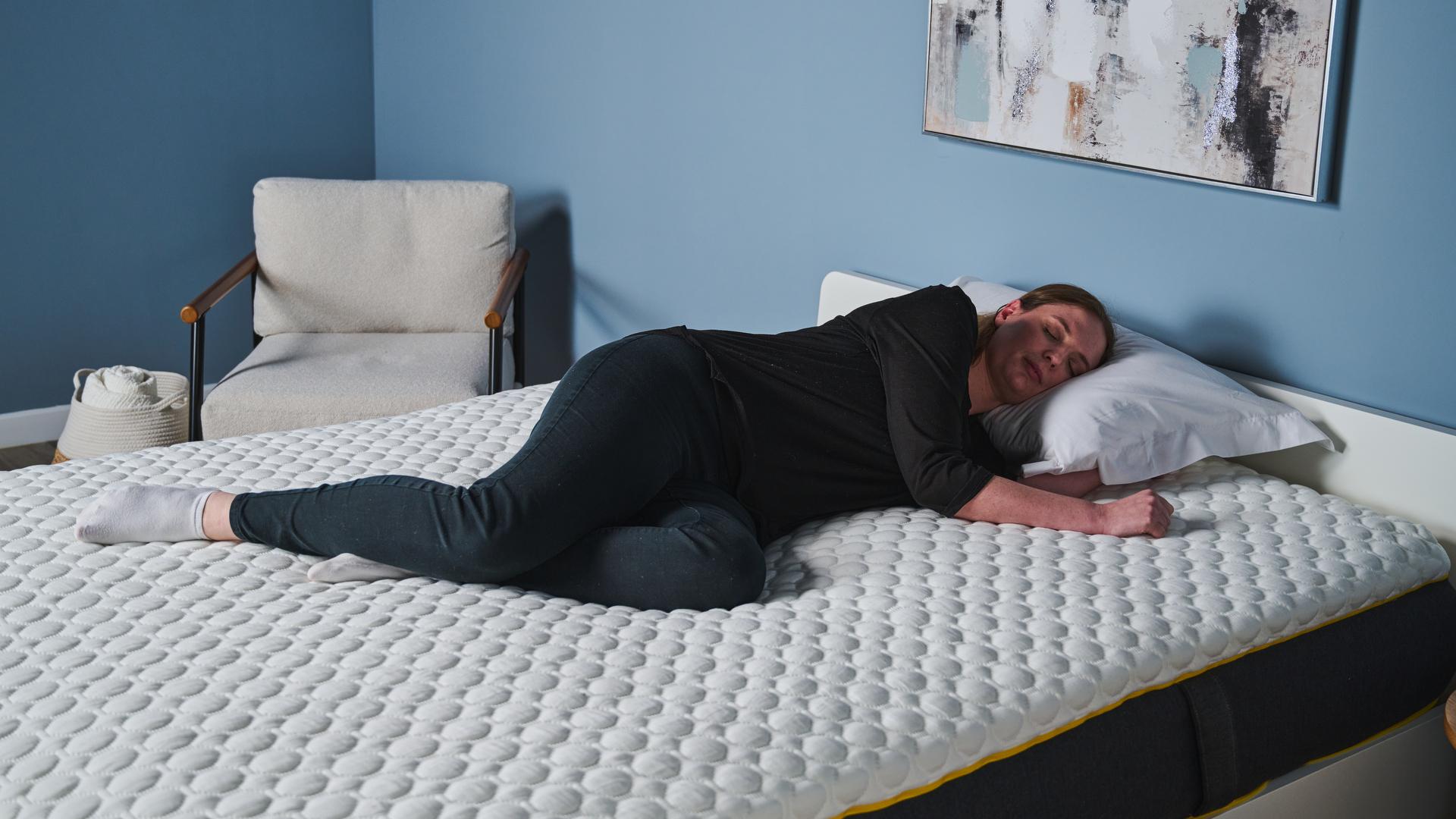
The right side sleeping position mostly mirrors that of the left side sleeping position… only flipped.
Who the right side sleeping position is best for
Similar to left side sleeping, right side sleeping is a wise choice for the majority of sleepers.
Pros:
- Promotes spinal alignment and comfort of the shoulders, hips, and knees
- Reduces instances of snoring
- Alleviates pressure on trigger points for those with fibromyalgia
- Relieves pain from acute low back injuries
- More comfortable for those with heart failure
Right side sleeping offers nearly all of the same benefits as left side sleeping, including improved gastric efficiency. Per a small 2013 study of 8 healthy male volunteers published in the World Journal of Gastroenterology, gastric emptying of water was faster when sleeping on their right side compared to a sitting position.
While more research is needed to determine the digestive health perks of sleeping in this position, the authors suggested that sleeping in this position could potentially help patients reduce nocturnal GI reflux, since delays in gastric emptying can lead to symptoms
Cons:
- Risk of irritating hips if legs not positioned properly
As Dr. Tahir noted above, you’ll want to ensure that your top leg — in this case the left leg — doesn’t hang forward or hyper-flex. If it does, it may trigger pain in the left hip and/or left sciatic nerve.
Recommended mattresses for right side sleepers
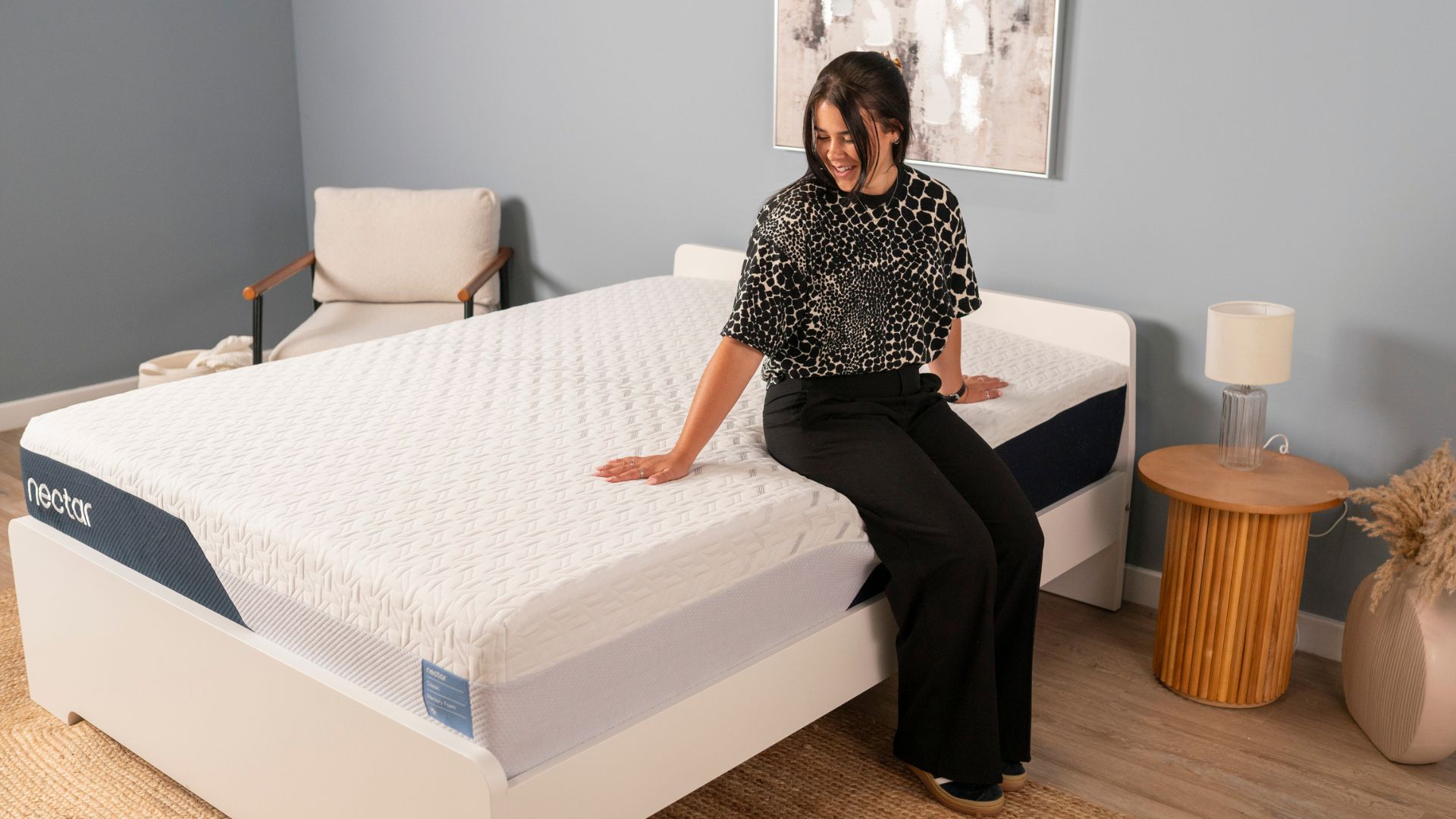
The best mattresses for the right side sleeping position will mirror those of the left side sleeping position. Ideally, for side sleeping, you’ll want to opt for a softer mattress, rather than a very firm one. This will help reduce pressure across the touch points of the mattress, such as the shoulders, hips and knees.
How to tell which sleeping position is best for you
In short, the best sleeping position for you will ultimately hinge upon a few factors. Most important among them are if:
- You snore
- You struggle with acid reflux, heartburn, or other digestive issues
- You have lower back pain
- You have issues on one side of your body
Again, back and side sleeping (on the left or the right side) are far superior to stomach sleeping, though the best choice will get more niche based on the contributing factors listed above.
How to choose the right mattress for your sleeping position
Choosing the right mattress can be confusing and even overwhelming. However, you can whittle down your options by looking into the best mattresses for your preferred sleeping position and/or symptoms, such as the best mattresses for back pain.
When buying a mattress, be sure to consult expert-approved guides and consumer reviews to get a better sense of a given mattress before you purchase it. Aside from looking into the best mattress for your sleeping position, you can also narrow down your options by taking firmness, trial times, warranties, and prices into account.
3 ways to sleep healthier tonight
1. Set a regular sleep schedule
“Sleep quality includes a regular sleep schedule and obtaining a normal percentage of all sleep stages," explains Dr Khayat. "We can help that by avoiding caffeine, alcohol and other substances close to bedtime and by maintaining a regular sleep-wake schedule with adequate light exposure in the morning."
2. Declutter your bedroom
Sleep hygiene is a big factor in having a healthy sleep - so making sure your sleeping environment is cool, clean and decluttered is essential. “It is important that we create an environment that tells our mind that it’s time to get ready for bed,” says Dr Mesiwala.
3. Turn off your phone
"Setting your phone aside, limiting social media and other digital media, and keeping the hour before you go to bed free from this type of stimulation," says Dr Mesiwala.
Michele Ross is a freelance writer based in Los Angeles. For Tom's Guide and TechRadar, she interviews medical experts for sleep tips and tricks, as well as reviews mattresses and toppers to see which ones are truly worth buying for different types of sleepers and budgets. She has also covered a range of sleep topics for publications and brands including Well+Good, HUM Nutrition, and Mini Bloom, among others.
You must confirm your public display name before commenting
Please logout and then login again, you will then be prompted to enter your display name.

